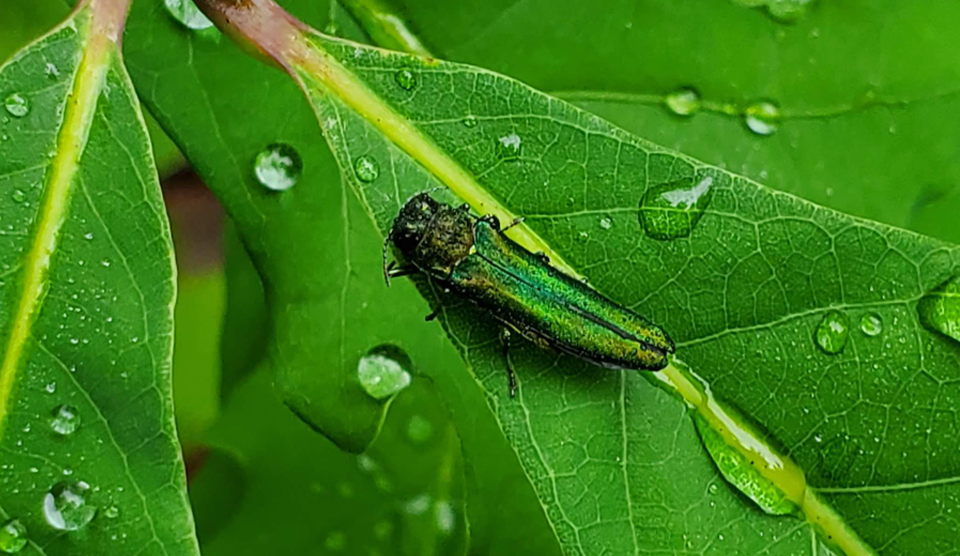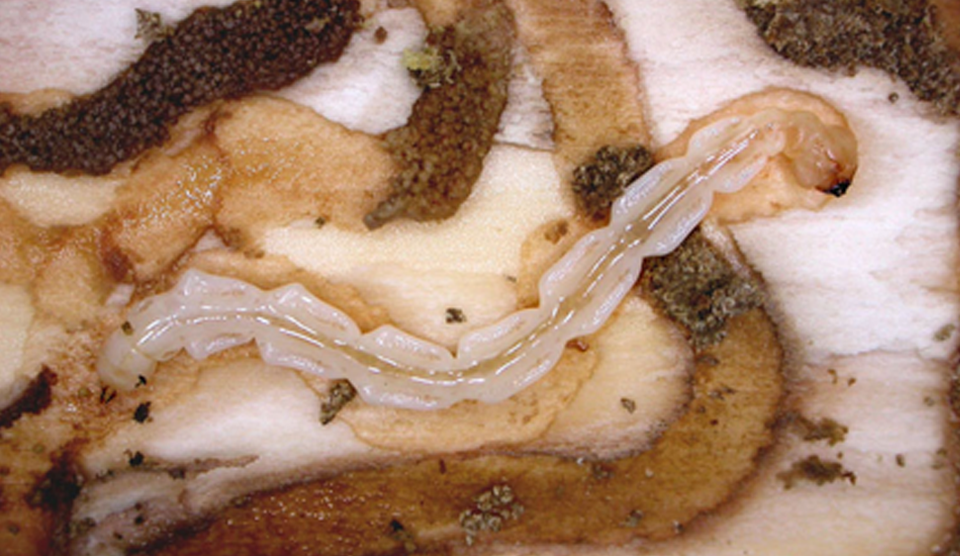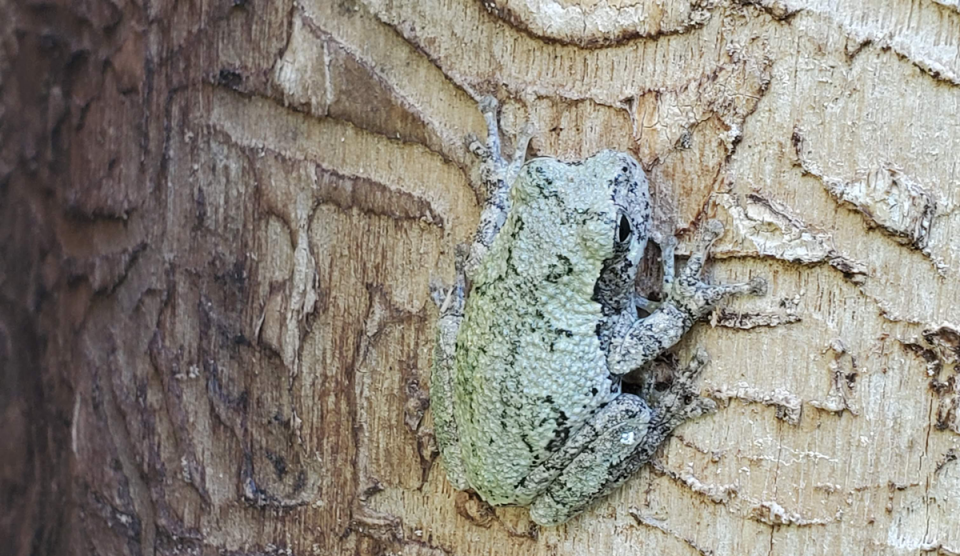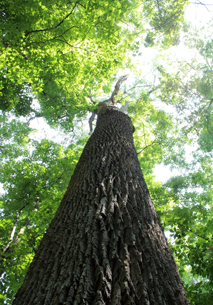About
Since the early 2000s, the emerald ash borer (EAB) has been infesting white and green ash trees and causing wide-spread mortality in North American ash. EAB is a small green beetle (Image 1) that lays its eggs on the bark of ash trees. Beetle larvae burrow under the bark of the ash tree (Image 2), where the tunnels they create damage the cambium of infested trees (Image 3), disrupting the flow of nutrients and water between the roots and leaves of infested trees. Infested trees generally die within a few years of the initial infestation.



Why Lingering Ash?
In areas where EAB has been established for several years, and in which greater than 95% of native white and green ash trees have succumbed to EAB, lingering ash are those ash trees that remain in good health. Lingering ash trees cannot be treated for EAB with an insecticide to be considered lingering ash. Rather, they must be untreated, naturally growing (not planted) trees to be classified as lingering ash for our purposes. The purpose of searching for lingering ash in Kentucky is to identify potential trees for seed collection. Seed from lingering ash may potentially have some genetic resistance to the emerald ash borer that enables these trees to continue to grow and thrive, while the majority of the ash in an area succumb to EAB.
Lingering ash trees are only one option foresters and researchers are exploring to ensure the future of ash trees in North America. Collecting seed and growing trees from lingering ash may allow nurseries to breed and grow ash trees with the lingering ash resistance to EAB. By identifying lingering ash trees within Kentucky, we can hopefully preserve the genetics of our local ash populations, while also breeding for EAB resistance.

